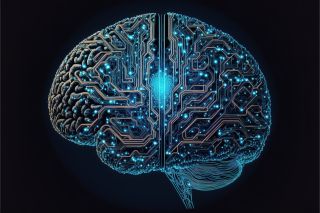Neuroscience
Merging Neural Studies With Psychopharmacology
Neuropsychopharmacology is another emerging discipline in the neuro realm.
Posted April 28, 2024 Reviewed by Jessica Schrader
Key points
- Neuropsychopharmacology is a multifaceted approach to psychopharmacology, incorporating neuro studies.
- The discipline examines how neural mechanisms and drug effects influence human behavior.
- Two complex emerging studies can provide answers in phenomenological developments for treatment planning.

As severe mental illnesses continue to emerge, the importance of pharmacological approaches has become prevalent within the pharmaceutical industry. Also, significant research identifies how psychotropics have influenced medical and neuropsychological efforts, predominantly drug effects on brain health and performance. However, other experts have posited there is insubstantial data to determine the clinical relevance of conceptualizing modern medicinal effects on the brain while relieving psychiatric conditions.
Ivanov and Schwartz (2021) purported that the “translational research model (i.e., newly discovered pragmatic applications such as therapeutic modalities or preventative measures)” has not produced clinical significance in how psychotropics improve brain performance while treating psychiatric disorders. Their stance is predicated on limited pharmacological treatment availability to relieve symptoms (e.g., anxiety, depression, stress, etc.) while treating underlying conditions (e.g., cognitive performance, brain injuries, cognitive impairment, physiological functions, etc.). Nonetheless, neuropsychopharmacological research has emerged within the last two decades, showing a significant link between drug effects, brain functioning or changes (i.e., decline or neuroplasticity), treatment relief, and human behavior.
What Is Neuropsychopharmacology?
In 1961, the American College of Neuropsychopharmacology (ACNP) was established as a testament to the collaborative spirit of the scientific community in neuroscience and pharmacology. It aimed to examine the relationship of complex phenomena of brain performance and human behavior through advanced scientific research and education initiatives.
The organization's interdisciplinary objectives underscore the importance of various scientific disciplines that emphasize neuropsychopathology and behavioral disorders. This collaborative effort led to careers in neuropsychopharmacology, where scientists worked together to provide appropriate pharmacological treatment for those with brain and behavioral disorders.
ACNP is a symbolic organization, and scientists are invited to be members based on original, rigorous, and complex contributions, particularly in neuroscience. Nonetheless, many scientists represent various fields in clinical psychopharmacology, chronobiology, epidemiology, genetics, molecular biology, neurochemistry, neuroendocrinology, neuroimmunology, neurology, neurophysiology, psychiatry, and psychology (American College of Neuropsychopharmacology, 2017). As forensic neuropsychopathology develops and becomes a credible phenomenon among other fields, neuropsychopharmacology will become essential, including its pharmaceutical methodologies, policies, and practices.

According to ACNP (2000), neuropsychopharmacology is comprehensively outlined as follows: “links the frontier of basic neuroscience to treating neurological and psychiatric diseases, seeking to understand how drugs can selectively affect the central nervous system to relieve pain, heighten attention, induce sleep, reduce fever or appetite, suppress disordered movement, or prevent seizures. Notably, this is the field that seeks to understand how drugs can treat anxiety, mania, depression, or schizophrenia without altering consciousness.
On a more profound level, this field seeks to understand the biological basis for such complex mental states as the disordered cognition of the schizophrenic. On this level, the goal is not only to understand the nature of the alteration in biology that leads to altered emotions and thought processes but also to develop specific therapeutic molecules to regulate their biological underpinnings – namely, the as yet unspecified sequences of multineural interactions by which these behaviors emerge (para. 1).”
Neuropsychopharmacology is a subsidiary of pharmacology, analyzing how drugs affect the body based on structure, therapeutic, clinical and medical use, and toxicological implications. Pharmacology examines drug reactions to normal and abnormal functioning within the human body. Two elements are the basis of pharmacology: understanding how the body affects the drug (i.e., pharmacokinetics) and drugs' effects on the body (i.e., pharmacodynamics). Therefore, neuropsychopharmacology has a keen focus on how drugs influence behavioral and brain changes that impact cognitive performance.
Forensic neuropsychopathology (FN) is the combination of clinical neuropsychological practices and the scientific study of mental disorders that pertain to decision-making within civilian and military legal systems (Chouraeshkenazi, 2021; Chouraeshkenazi,2023a; Chouraeshkenazi, 2023b). Essentially, FN examines the relationship between the brain, mental illness, and the law. Research has shown that there is a clinically and statistically significant relationship between long-term severe mental illnesses (i.e., neuropsychopathologies) in the brain and human behavior, leading to cortical structural changes within specific brain regions. Such severe cases have identified medical and neuropsychiatric considerations in legal cases (Umbrasas, 2020).

Neuropsychopharmacology and pharmacology are “bridge” sciences, encompassing relevant data from multiple scientific disciplines. With the former extensively producing research in neuropsychology and psychology, more research is required for understanding the complexity of drug effects, brain performance, behavior, and severe neuropsychopathologies. This is especially important when dealing with the legalities of increased medicinal management, drug abuse, and crime.
Exacerbated mental illness cases have resulted in increased neurocognitive disorders (e.g., traumatic brain injuries, medical conditions, drug-induced, etc.) throughout the country. According to Odejimi et al. (2020), anxiety (14.2 to 72%), cognitive impairment (3.66 to 39.2%), dementia (23.7 to 74.5%), and depression (23.7 to 74.5%) are the leading neuropsychiatric factors of neurocognitive disorders. However, medical evidence suggests that heredity/genetic history, physical inactivity, cardiovascular diseases, diabetes, and excessive alcohol or substance use are just as critical (Wolfova et al., 2021).
Not only are pharmacological approaches needed for medical conditions, but psychotropics are critical in treating psychiatric conditions. Brief clinical psychopharmacology 101—generally, each psychotropic drug has a specific mechanism of action within the body and adjusts through brain neurotransmitter (i.e., brain chemicals that send communication throughout the body) levels dependent on the drug and the treatment modality. They work by creating a balance of imbalanced neurotransmitters in the brain to reduce psychiatric symptoms (e.g., anxiety, depression, or stress).
There is more complexity to the realm of neuropsychopharmacology, which is worth further exploring; however, ensuring the treatment of mental disorders, mitigating debility, and preventing relapse of symptomologies are most significant to forensic neuropsychopathological initiatives. Understanding that not only is there an increase in such complex conditions, but legal issues ensue based on the substantial link between neuropsychopathological conditions and violent crimes. With this in mind, neuropsychopharmacology and forensic neuropsychopathology are two emerging fields that will be dependent upon one another to establish advanced treatment for neuropsychiatric illnesses.
References
American College of Neuropsychopharmacology. (2017). Neuropsychopharmacology – 5th generation of progression. https://acnp.org/digital-library/neuropsychopharmacology-5th-generation-progress/
American College of Neuropsychopharmacology. (2000). Introduction to preclinical neuropsychopharmacology. https://acnp.org/g4/GN401000001/Default.htm
Chouraeshkenazi, M. M. (2021). Understanding forensic neuropsychopathology. Psychology Today. https://www.psychologytoday.com/us/blog/in-the-public-interest/202104/understanding-forensic-neuropsychopathology
Chouraeshkenazi, M. M. (2023a). Forensic neuropsychopathological analysis on altered brain structure in combat veterans: A systematic review. Taylor & Francis: F1000 Research, 12, 567. https://doi.org/10.12688/f1000research.132840.1
Chouraeshkenazi, M. M. (2023b). Forensic neuropsychopathology and advanced initiatives. Psychology Today. https://www.psychologytoday.com/us/blog/in-the-public-interest/202312/forensic-neuropsychopathology-and-advanced-initiatives
Ivanov, I., & Schwartz, J. M. (2021). Why psychotropic drugs don’t cure mental illness – but should they? Frontiers in Psychiatry, 12, 579-566. https://doi.org/10.3389%2Ffpsyt.2021.579566
Odejimi, O., Tadros, G., & Sabry, N. (2020). A systematic review of the prevalence of mental and neurocognitive disorders amongst older adults’ populace in Egypt. Middle East Current Psychiatry, 47, 27. https://doi.org/10.1186/s43045-020-00055-8
Umbrasas, K. V. (2020). An examination of PTSD and criminal responsibility among U.S. servicemembers. Military Medicine, 12(1-2), 92-96. https://doi.org/10.1093/milmed/usz142
Wolfova, K., Kucera, M., & Cermakova, P. (2021). Risk and protective factors of neurocognitive disorders in older adults in Central and Eastern Europe: A systematic review of population-based studies. PLOS ONE, 16, 11. https://doi.org/10.1371%2Fjournal.pone.0260549




